This blog is part of a project on the state of democracy in Africa. See our other works from this project.
August 2025 marked seven years since the deadly 2018 post-election violence in Zimbabwe that resulted in the deaths of seven innocent people. The deaths followed urban protests in the capital city Harare against what some civilians saw as a deliberate delay in the Electoral Commission’s release of the presidential poll result. While political violence has undermined Zimbabwean democracy since 1980, the military’s use of violence in 2018 was, specifically, in defense of a political order created by the military through the 2017 coup which brought President Emmerson Mnangagwa to power. As we argue in our recent report “Understanding the evolution and state of democracy in Zimbabwe,” the reluctance of America and other Western countries to condemn and attempt to reverse the coup likely contributed to the coup-born government’s evasion of international condemnation and initial veneer of legitimacy, entrenching authoritarian norms further in the country.
In 2021, the U.S. White House set up an annual “Summit for Democracy” in response to what they considered a global democracy recession. The White House stated that the defense of democracy is “the defining challenge of our time.” The first Summit for Democracy drew hundreds of participants from around the world and had as its key objectives the restoration of America’s standing as the global champion of democracy and the bolstering of democracy in the face of resurgent authoritarianism.
In June 2025, however, the U.S. government announced a major shift in its international policy by shutting down USAID—a move that could signal declining concern for external democracy promotion. In line with this, a month later, the U.S. State Department circulated a memo to its embassies abroad, stating that they cease making public statements about the credibility of foreign elections. According to the State Department, post-election “messages should avoid opining on the fairness or integrity of an electoral process, its legitimacy, or the democratic values of the country in question,” except when there is a “clear and compelling” foreign policy interest.
This recent shift in American policy leaves observers of Zimbabwean politics unsure of what tack the U.S. will take going forward. As our previous report argues, pro-democracy states, including the American government, did not publicly condemn the 2017 coup in Zimbabwe due to various factors—one, for example, was the prevailing idea that the problems with Zimbabwean democracy were attributable to the longtime Mugabe regime, and a new government should be given the opportunity to restore order. However, this lack of international condemnation was a missed opportunity to send a strong message to Zimbabwe about the importance of respecting democratic institutions and the upholding of anti-coup norms. The entrenchment of the new post-coup government had downstream effects on Zimbabwe’s subsequent democratic trajectory.
After the coup, the key reform and legitimacy test was the first post-coup election, held in 2018. The coup-born government was expected to deliver a credible post-coup election, devoid of political violence and manipulation by the Electoral Commission—rigging practices which marred many elections in the Robert Mugabe years. Following this, there would be concerted moves by the U.S. and other Western states to re-establish economic and diplomatic ties they broke off in the early 2000s. But the 2018 election proved to be a false dawn, amid continued limited independence of the Electoral Commission, lack of transparency in the presidential vote count, and strong post-election violence, all of which facilitated the coup-born government’s retention of power. The subsequent election in 2023 saw concerning intimidation of opposition parties and, like in 2018, a lack of transparency in key electoral processes, attracting criticism from regional and international observers.
The coup-born political order has also significantly restricted human rights by jailing journalists and punishing citizen protest. Over 160 members of opposition, activists, and journalists were arrested in 2024 alone. Those arrested are frequently held without bail.
Civil rights have also eroded. One of the main casualties under coup-born governments is frequently women’s participation in politics. Coups masculinize politics and coup-born governments rarely encourage women’s independent involvement in politics. In Zimbabwe, for example, women’s participation in politics has declined since the coup. Only 11% of candidates running for seats in the national assembly in 2023 were female, down from 14% in the 2018 election. Yet in the 2013 election, before the coup, women’s participation was at 32%.
It is important that democracy is fought for and won by domestic democratic forces in opposition parties and civil society and, in this regard, these entities have not acquitted themselves well in Zimbabwe. To better advance democracy, opposition parties and civil society need to resolve persistent internal divisions that have, for instance, resulted in a series of splits from the original main opposition MDC party in the past two decades. Divisions in the opposition have consistently undermined its chances of victory in elections and its capacity to mount non-violent resistance. Moreover, as the August 2018 shootings show, breaking the loyalty of key elements in the military from the ruling ZANU PF party is an important fix that opposition and civil society in Zimbabwe have not been able to effectively tackle.
Looking internationally, however, furthering democracy in Zimbabwe—and worldwide—requires equal, consistent, and authentic partnerships between local and external pro-democracy actors. While it remains to be seen how diplomacy and democracy-building will be prioritized under the second Trump administration, we hope that international governments who support democracy would do so not only when it is politically expedient. Working toward this goal by condemning autocratic governments at conception could help avoid another situation like the 2017 Zimbabwean “coup that was not called a coup.” Establishing diplomatic partnerships with external actors—watchdog organizations, other governments, and more—is by no means a simple task, but it is one of the surest policy approaches there is for aiding struggles for democracy and transparency in Zimbabwe and elsewhere.
-
Acknowledgements and disclosures
The Brookings Institution is a nonprofit organization devoted to independent research and policy solutions. Its mission is to conduct high-quality, independent research and based on that research, to provide innovative, practical recommendations for policymakers and the public. The conclusions and recommendations of any Brookings publication are solely those of its author(s), and do not reflect the views or policies of the Institution, its management, its other scholars, or the funders acknowledged below.
This publication is supported by a grant from the Open Society Foundations.
Brookings recognizes that the value it provides is in its absolute commitment to quality, independence, and impact. Activities supported by its donors reflect this commitment.
The Brookings Institution is committed to quality, independence, and impact.
We are supported by a diverse array of funders. In line with our values and policies, each Brookings publication represents the sole views of its author(s).
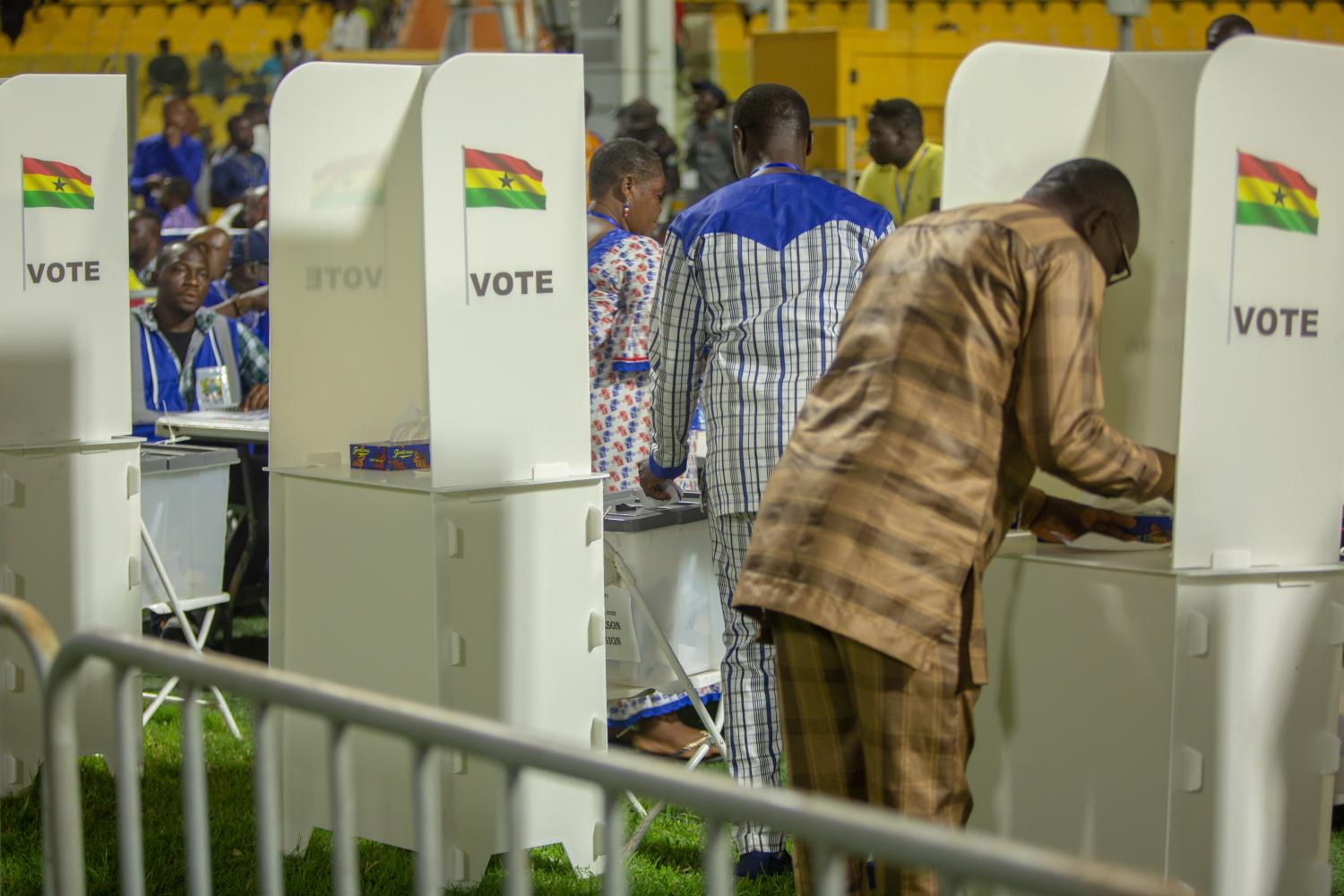

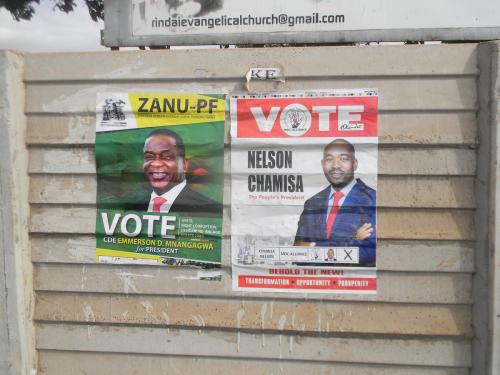

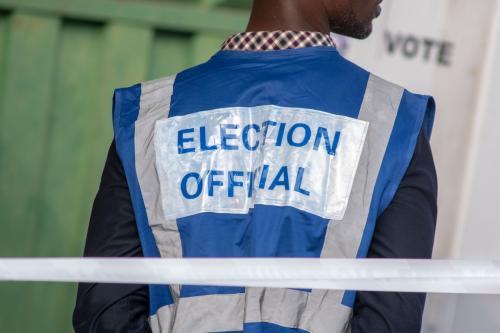
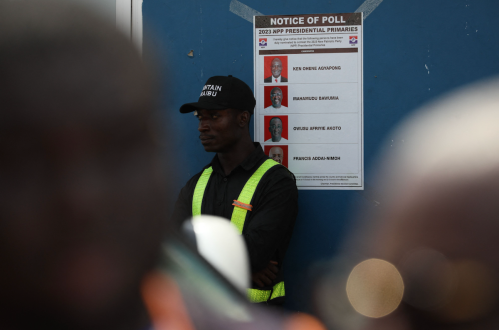
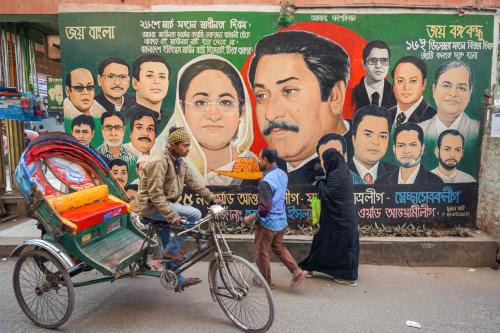

Commentary
The changing landscape of U.S. international democracy policy in 2025: Lessons from Western engagement with Zimbabwe
October 27, 2025